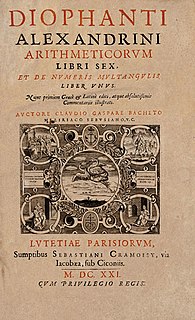A Quote by Samuel Johnson
It is more reasonable to wish for reputation while it may be enjoyed, as Anacreon calls upon his companions to give him for present use the wine and garlands which they propose to bestow upon his tomb.
Related Quotes
I look forward serenely to the course of events, confident that the Fountain of supreme wisdom and virtue will provide for the happiness of his creatures... Whenever the present storm subsides, I shall rush with eagerness into the bosom of private life, but while it continues, and while my country calls for the exertion of that little share of abilities, which it has pleased God to bestow on me, I hold it my indispensable duty to give myself to her.
Some souls think that the Holy Spirit is very far away, far, far, up above. Actually he is, we might say, the divine Person who is most closely present to the creature. He accompanies him everywhere. He penetrates him with himself. He calls him, he protects him. He makes of him his living temple. He defends him. He helps him. He guards him from all his enemies. He is closer to him than his own soul. All the good a soul accomplishes, it carries out under his inspiration, in his light, by his grace and his help.
When a friend is carried to his grave, we at once find excuses for every weakness, and palliation of every fault. We recollect a thousand endearments, which before glided off our minds without impression, a thousand favors unrepaid, a thousand duties unperformed; and wish, vainly wish, for his return, not so much that we may receive as that we may bestow happiness, and recompense that kindness which before we never understood.
No man, however enslaved to his appetites, or hurried by his passions, can, while he preserves his intellects unimpaired, please himself with promoting the corruption of others. He whose merit has enlarged his influence would surely wish to exert it for the benefit of mankind. Yet such will be the effect of his reputation, while he suffers himself to indulge in any favourite fault, that they who have no hope to reach his excellence will catch at his failings, and his virtues will be cited to justify the copiers of his vices.
The saints should always remember that God sees not as man sees; that he does not willingly afflict his children, and that if he requires them to endure present privation and trial, it is that they may escape greater tribulations which would otherwise inevitably overtake them. If He deprives them of any present blessing, it is that he may bestow upon them greater and more glorious ones by-and by.
It is possible that an individual may be successful, largely because he conserves all his powers for individual achievement and does not put any of his energy into the training which will give him the ability to act with others. The individual acts promptly, and we are dazzled by his success while only dimly conscious of the inadequacy of his code.
We wish that this column, rising towards heaven among the pointed spires of so many temples dedicated to God, may contribute also to produce in all minds a pious feeling of dependence and gratitude. We wish, finally, that the last object to the sight of him who leaves his native shore, and the first to gladden his who revisits it, may be something which shall remind him of the liberty and the glory of his country. Let it rise! let it rise, till it meet the sun in his coming; let the earliest light of the morning gild it, and the parting day linger and play on its summit!
Prosperity knits a man to the world. He feels that he is finding his place in it while really it is finding its place in him. His increasing reputation, his widening circle of acquaintances, his sense of importance, the growing pressure of absorbing and agreeable work build up in him a sense of being really at home on earth which is just what we want.
His epitaph: This tomb hold Diophantus, Ah, what a marvel! And the tomb tells scientifically the measure of his life. God vouchsafed that he should be a boy for the sixth part of his life; when a twelfth was added, his cheeks acquired a beard; He kindled for him the light of marriage after a seventh, and in the fifth year after his marriage He granted him a son. Alas! late-begotten and miserable child, when he had reached the measure of half his father's life, the chill grave took him. After consoling his grief by this science of numbers for four years, he reached the end of his life.
A man may go into the field and say his prayer and be aware of God, or he may be in Church and be aware of God; but if he is more aware of Him because he is in a quiet place, that is his own deficiency and not due to God, Who is alike present in all things and places, and is willing to give Himself everywhere so far as lies in Him... He knows God rightly who knows Him everywhere.
To instruct calls for energy, and to remain almost silent, but watchful and helpful, while students instruct themselves, calls for even greater energy. To see someone fall (which will teach him not to fall again) when a word from you would keep him on his feet but ignorant of an important danger, is one of the tasks of the teacher that calls for special energy, because holding in is more demanding than crying out.


































